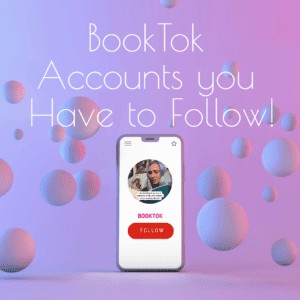What’s beta reading and why does it exist?
Beta reading is a term that stems from the IT industry when beta testers were used to test early versions or designs of software.
Instead of software, however, beta readers in the literary field are used by writers to review a finished manuscript before it goes to professional editors or publishers.
They’re necessary as, during self-editing, a writer can look past initial flaws, which is when beta readers make their presence felt, pointing out their likes, dislikes, and elements to which writers have turned a blind eye despite countless revisions. Along with editors, they too play a crucial part in making sure the book is readable and marketable.

What sets beta readers apart from alpha readers, critique partners, and editors?
Unlike alpha readers who look at the first draft and provide feedback and critique partners who look at the work from a writer’s perspective and critique the craft, beta readers provide feedback from a reader’s perspective. Unlike an editor, they don’t go through the work with a fine-tooth comb nor point out any typos but can point out plot holes or pacing issues.
Where or how can you find a beta reader to suit your needs?
- If you’ve any brutally honest relatives who don’t pander to your ego, are well versed in literary knowledge, and are also supportive of your craft, then seek their help.
- Search for people who are part of your target audience.
- There are both paid and free beta readers. Depending on your budget, you can reach out to them through freelance sites like Fiverr, on reading groups on Goodreads and Facebook, or among willing audience members at writing/reading events held at libraries, bookstores, and even coffee shops.
- Sign up for TCK Publishing’s Beta-reader connection service, Absolute Writers Water Cooler website, or Nathan’s Bransford Forum, free of cost and have beta readers for every genre.
- Reach out to other writers whom you might know on social media. But don’t be pushy about it.

How to become a beta reader?
- Take a literary criticism class or two. No degree required.
- Broaden your knowledge about plot, pacing, character development, etc.
- Be brutally honest but don’t forget to point out the nice aspects of a work.
- Keep a notebook at hand while reading through the manuscript so you can jot down the positives and negatives.
- Don’t get hung up on typos. That’s the job of a professional proofreader/editor.
- Don’t be abusive or mean-spirited. Only stick to dishing out constructive criticism.
- Be genuinely passionate about reading and the craft of writing, ya giant bookworm!
- Seek out genres you’d love to read as writers often pick from their target demographic.
- Start your own Facebook page listing out services. Goodreads page works too.
- Reach out to aspiring writers who wish for their work to be read by you.
- Set deadlines and conform to them.
As a writer, what can you do to ensure a better beta reading experience?
- Don’t take constructive criticism to heart or too personally. Beta readers are only there to guide you.
- Please do not waste a beta reader’s time and try to stick to their or your own time regime.
- Do not be egotistical and snobby when it comes to constructive criticism, as many beta readers are genuine in their criticism.
- Set a questionnaire for beta readers about what they like/dislike about the pacing, characterization, whether the story drags or flows or is balanced, whether there’s too much info dump, whether readers can visualize the scenes in their mind as they read, etc.
- Be ready to be torn apart, especially if you have a penchant for overusing clichés and tropes that are done to death with.
- Look for a beta reader from your target audience and somebody who is knowledgeable about the craft.
- Beta readers who can pinpoint sensitive topics or educate you about inaccuracies make for the best beta readers. These are also known as sensitivity readers.
- Look for a reader who enjoys variety and doesn’t just stick to one particular genre.
- Don’t argue or ignore the opinion of the majority.
- Don’t just stick to feedback from peers, as peers can pander to your ego instead of feeding you criticism.
- Be open-minded to feedback but not quick in implementing it. One beta reader may think a part of your book is crucial, but five others might have a different opinion.
- Last but not least, ensure that there aren’t too many beta readers involved as too many cooks spoil the broth, as the saying goes. Usually, it takes at least five beta readers to ensure your copy at least makes an iota of sense before you turn it into a professional who will polish the rest of it for you.
Thank you for your time, and always remember that ‘beta reading leads to better writing’ (see what I did there?). If you are an aspiring beta reader, I do wish you the best of luck and hope that this post helps. Do share if you’re friends with an author looking for a beta reader.



